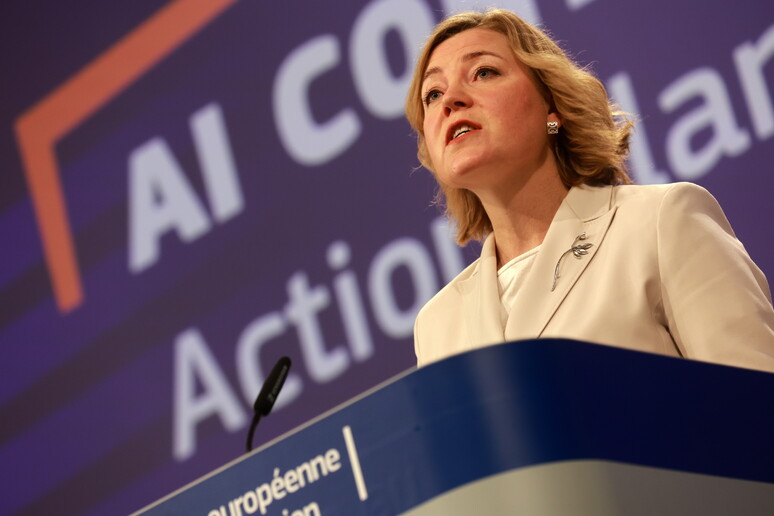More investment, less red tape on
businesses.
The EU is embarking on a new course for the development of
artificial intelligence in an attempt to make up ground in a
race considered far from over in Brussels.
The European Commission has presented an action plan to make
Europe a world leader in AI, which includes the creation of AI
gigafactories in Europe that will integrate enormous computing
power and data centers to train and develop complex AI models on
an unprecedented scale.
The Berlaymont Palace also intends to stimulate private sector
investment in cloud and data center capacity, proposing in the
coming months a law on the development of cloud and AI that aims
to "triple the capacity of EU data centers in the next five to
seven years". In addition to strengthening the data and
computing infrastructure for large-scale AI, the plan also
includes initiatives to increase access to large, high-quality
data, develop algorithms and promote the adoption of AI in
strategic EU sectors, and strengthen AI skills and talent.
The last of the five pillars in which the plan is divided is the
one dedicated to regulatory simplification, which could also
concern the AI ;;Act, the European law on AI approved in the
last legislature and fully applicable from 2026.
The aim is to reduce "the regulatory burden to a minimum" and
ensure "a simple and innovation-friendly implementation of the
AI ;;Act", said Henna Virkkunen, Vice President of the European
Commission responsible for technological sovereignty, arguing
that reducing some reporting obligations "is not harmful to
anyone".
According to the AI ;;Act, she explained, "about 85% of all AI
systems are not yet regulated", while "for the remaining 15% we
want to achieve maximum simplicity".
In short, there is a completely different atmosphere compared to
the previous legislature that had made the three architraves of
European digital - in addition to the AI ;;Act also the Digital
Markets Act and the Digital Services Act - one of its hobby
horses.
And it is precisely the EU legal arsenal on digital that has
ended up in the crosshairs of the new American administration
that accuses Brussels of wanting to impose punitive rules on
star-spangled companies and threatens retaliatory measures to
protect US economic interests in the event of sanctions imposed
by Brussels on American companies.
"The part regarding regulatory simplification will need to be
explored in more depth," warned Brando Benifei, MEP for the
Democratic Party and rapporteur for the AI ;;Act.
"If it means helping European companies reduce costs and
facilitate the development and adoption of AI systems, it will
certainly be supported, as we have already done with the
facilitated lanes, the so-called sandboxes, for the development
of products by European startups," he explained.
"If, on the other hand, it will be a favor for big tech
companies that ask not to have responsibilities and rules, it
will certainly encounter firm opposition."
ALL RIGHTS RESERVED © Copyright ANSA











